What It’s Like to Experience Reverse Culture Shock After Leaving Japan
Think culture shock is rough? Try moving back to a place you thought you knew!
I recently returned to my home country of America after living in Osaka for six years. I wasn't prepared for what to expect.
Recently, I was catching up with a friend at a Thai restaurant near Hollywood. When we finished eating, the waiter promptly put down the check. I handed over my debit card happy that lunch managed to remain just under 30 bucks. My card returned with a receipt, which I noticed included a small, blank line begging to be filled in just above where I had to sign. I squinted at it, confused, then gasped.
“Oh sh*t, I forgot about tipping!”
Though born and raised in the United States (and even having worked in restaurants there), I’d totally blocked the existence of tips from my brain. I’d recently returned to start a new life in Los Angeles after a six-year stint in Osaka, where, as in the rest of Japan, servers get paid an hourly wage, which means they aren’t constantly hovering over your table waiting to refill your water after a single sip in the hopes you’ll remember to spot them an extra yen.
Reverse culture shock had me in its grasp.
Contrary to its name, however, reverse culture shock isn’t the opposite of culture shock—the reversal is the return home after residing abroad. What was previously familiar has now, for one reason or another, become perplexingly foreign. I spent 23 years in America before moving to Japan, so moving to the land of raw fish and talking toilets was obviously an adjustment. What I didn’t imagine was how weird it would be to return home after a relatively short six years away.
Yet, reverse culture shock is a blast. Everything feels so fresh and exciting. Even when I make myself look silly in my ignorance (we don’t swipe cards anymore at checkout, apparently), I find the experience delightful. Every day is both a struggle and a treasure as I relearn how to function in my home country and I’m enjoying being amazed by a number of “new” discoveries. Here are a few that I’ve been most shocked by, which highlight some of the key differences between the US and Japan — based on my personal experience.
Japanese people are typically more polite, but Americans are friendlier
When I leave home now, no matter the situation, I interact with strangers. People on the street smile and say hi, cashiers strike up conversations, and people I’m waiting in line with become my friends. Strangers compliment my hair color and joke around with me totally unprompted. It makes my day every time.
Japanese people, by contrast, don’t often speak to those they don’t know (unless alcohol is involved). There’s a strict level of formality and politeness that gets in the way of strangers interacting on a real, human level. Once you get to know Japanese people, their personalities come out and it’s a delight, but I’m enjoying the absence of any barriers in the first place. It’s refreshing.
Political and social engagement are way more intense in the US
In Japan, most of my interactions online and with friends involved discussions about art, music, shopping, and eating. I talk about that stuff with my American friends, too, but more often than not our conversations are peppered with commentary on the upcoming election. We also talk about immigration, the gender binary, the evils of capitalism—things that are usually only brought up in Japan during an English conversation class.
In 2018, the US experienced record voter turnout during the midterm elections; in Japan, fewer people are voting every year. It’s both exhausting and exhilarating to be around people who care so much.
Drinking isn’t a staple of every social function as it is in Japan
Having a nomikai (drinking with coworkers and friends) is a common way to end the day for many Japanese people. Not only is it a surefire way to break down those pesky social barriers, but it’s also practically a requirement. Drinking is a significant part of both social interactions and work culture. Back when I taught English in Osaka on Saturday mornings, I regularly encountered students who’d announce to me from the get-go they were hungover. With time, I stopped paying attention — it became normal. I had those late-night Fridays, too, after all.

Drinking is part of the game in Japan. (Photo by Michael Leung.)
Since I’ve returned to America, however, I’ve had one beer. On the rare occasions I hang out with other humans, I find that drinking is just not expected. Thanks to the importance of “Designated Drivers,” certain folks are always expected to be sober in social settings, so if you’re not drinking people just assume it’s because you have to drive home later. This takes a lot of the pressure off. Even when I lived—and went to college—in New Orleans, the booze capital of the US (just look up “Bourbon Street”), I didn’t drink as much as I did in Japan. And when I did, it felt like more of a choice than a social expectation. I can’t imagine having a student show up to a class I was teaching here and openly admit to having a hangover. Whereas in Japan, it’s simply normal to drink heavily no matter what you have to do the next day.
Public transit and facilities are much better in Japan

Me loving the shinkansen in Japan.
In Osaka, I lived a three-minute walk from a train station that connected to me directly to downtown. Now I live in the Southern California suburbs without a driver’s license. Being characterized by highways and sprawl, maybe the Greater Los Angeles area wasn’t the best place to relocate to.
What I didn’t imagine was how weird it would be to return home after a relatively short six years away.
Japan has boasted a sophisticated network of high-speed railways since the 1960s. Traveling by bullet train, it takes less than three hours to get from Osaka to Tokyo. Meanwhile, California has continuously postponed a plan to build a single high-speed rail line between LA and San Francisco, a similar distance apart, since 2008. Using trains is rarely a desirable or viable option in America.
Public facilities, in general, are far better in Japan. Toilets are almost always pristine and include stall doors tall enough for privacy. Roads are clearly marked and paved—in New Orleans, residents vote annually for their favorite pothole. Japan has it together when it comes to daily comfort and convenience in a way I don’t think America ever will.
Not a single person cares that I speak Japanese
Not. One.
Why would my friends and family be impressed by a language they don’t even understand? It’s not like they can judge my pronunciation! Perhaps, I should have learned some other skills while in Japan to show off to those back home.
Dealing with reverse shock
Reverse culture shock affects everyone to different degrees. I’m probably an example of the best case scenario as I am absolutely loving reintegrating (minus the lack of accessible transit and hot springs).
On the other hand, you have people like my friend Ferheen.
I met Ferheen, who just happens to be from California, while living in Japan. We became close doing The Vagina Monologues together and she inspired me daily with her intelligence and warmth. She’s a scientist who isn’t afraid to speak her mind about issues like feminism and white supremacy. So I was shocked to learn, when we met up near San Francisco last month to catch up over sushi (of course), she isn’t exactly excelling at readjusting to American life.
Ferheen left Japan in early 2018 after getting her masters in reproductive biology at Osaka University. She was paired with a Japanese host family, became fluent in the language, and participated in local traditions, fully immersing herself in the Japanese way of life during her three years in Kansai.
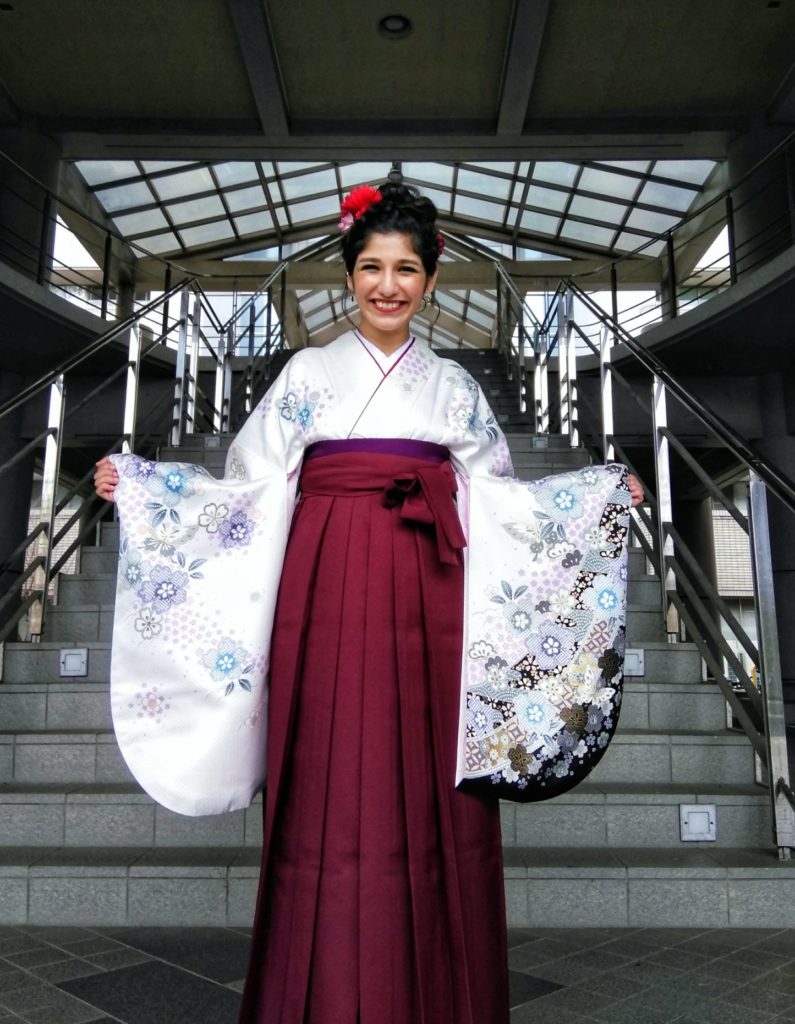
Ferheen during her stay in Japan.
One of Ferheen’s biggest woes is the current political climate in the US, which she finds “exhausting,” particularly when it comes to contentious issues like health care and gun control. In Japan, she experienced discrimination due to her race and gender, having an especially hard time as a foreign woman, but she preferred those challenges over her current ones.
“Yes, Japan is misogynistic and racist,” she told me, “but I didn’t have to worry about healthcare. I didn’t have to worry about guns and violence. I was the healthiest I had ever been in my entire life.” She walked over 10,000 steps a day in Japan just going about her daily life, but thanks to California’s infamous car culture she now makes less than half that without going out of her way.
Yet, she knew she had to return to America to succeed in her field. “I was at peace with myself emotionally and physically [in Japan], but not mentally. I knew that my potential was wasted in a country that doesn’t value the voice of women, especially non-Japanese women. At least in my own country, it’s not impossible to fight.”
Though Ferheen is now furthering her studies while doing volunteer work at a hospital, she faces yet another hurdle—living in the home of her conservative parents. “I had to relearn all of the rules and regulations that exist in my house. Living under my parents’ roof means I can’t go out late at night to my friend’s house and I can’t wear certain clothing. I don’t feel as safe in this country….I stopped exercising and fell into a depression because I missed Japan.”
Yes, Japan is misogynistic and racist, but I didn’t have to worry about healthcare. I didn’t have to worry about guns and violence. I was the healthiest I had ever been in my entire life.
She continued, “I struggle every day. I go to therapy—it helps, but very few people really understand this ache I feel. It’s been a year and I’m still struggling, but at the end of the day, I know I will be stronger, and Japan will (probably) still be there.”
The way people experience reverse culture shock basically boils down to two things—how much they integrate into their new culture and whether or not they return to their home country willingly.
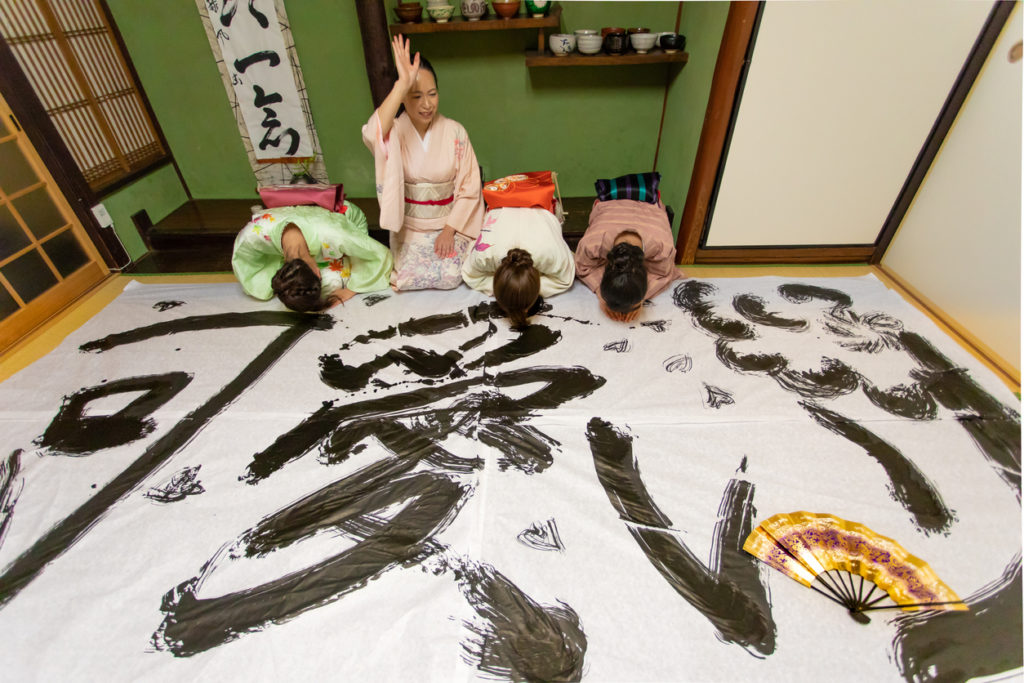
Japanese calligraphy performance. The more you’re immersed in your host country’s culture, the greater the chance is to experience reverse culture shock upon your return back home.
Sure, I studied Japanese and had plenty of local friends, but I also tended to live and hang out with fellow expats more often than not. It also helped that I engaged regularly with friends and family in my native country, as well as kept up to date with the news.
I still loved Japan, but I was tired of living in a place where I couldn’t be politically engaged or easily get feta cheese.
As for my return, it was prompted partially by a family emergency, but to be honest, I was ready to go. I still loved Japan, but I was tired of living in a place where I couldn’t be politically engaged or easily get feta cheese. So, my advice is: go home only when you are ready—don’t give in to your mom guilt tripping you about missing her baby—and plan ahead so you’re not rushing to leave Japan in a panic only to have no job or place to stay when you return. This is, of course, a privilege—people occasionally have to return home involuntarily (due to losing a work visa, for instance) or unexpectedly (like in the event of a family member’s death). But if you can manage to return home with intention, you’ll feel a lot better for it.
Living in a few different cities now have taught me they are all quirky and special and unique in their own ways and all take some getting used to. Plus, you might never totally fit in anywhere no matter how long you stay (in Osaka I was always a foreigner and in LA people look at me weird when I mention I don’t own a car). In some cases, like Ferheen’s, it can be hard to say if there is a “right” choice between being an outsider in your new country or back home. Regardless of where you live, a part of yourself will always remain there. That’s what makes peripatetic life interesting!
So, if you’re looking to move back to your home country after a stint in Japan, prepare for the unexpected. And then get ready to be freaked out anyway.












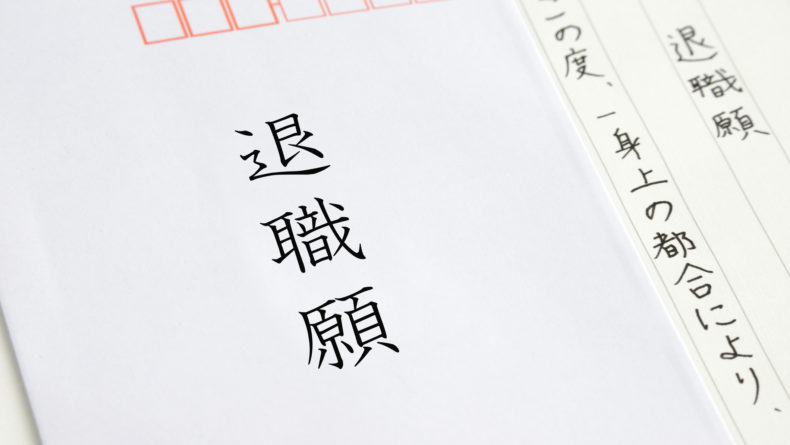
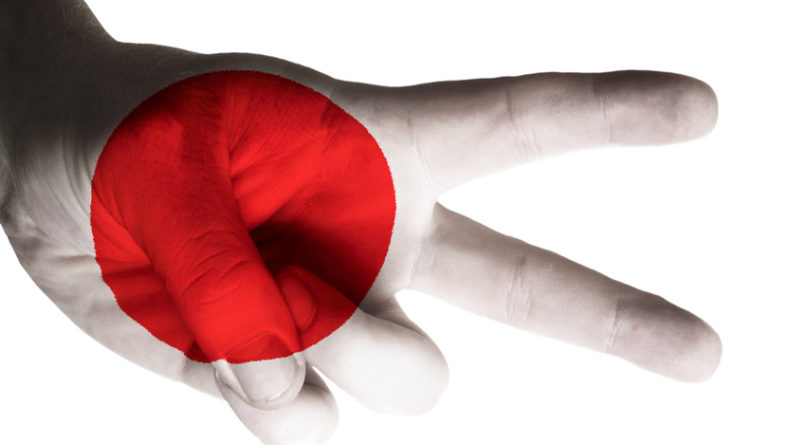

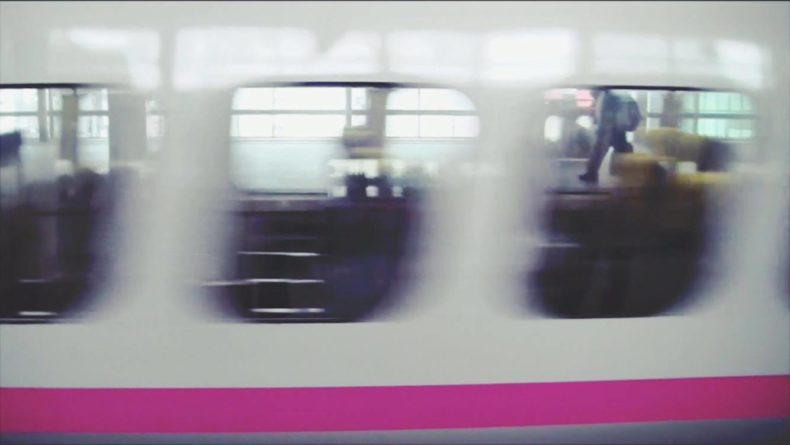
Leave a Reply